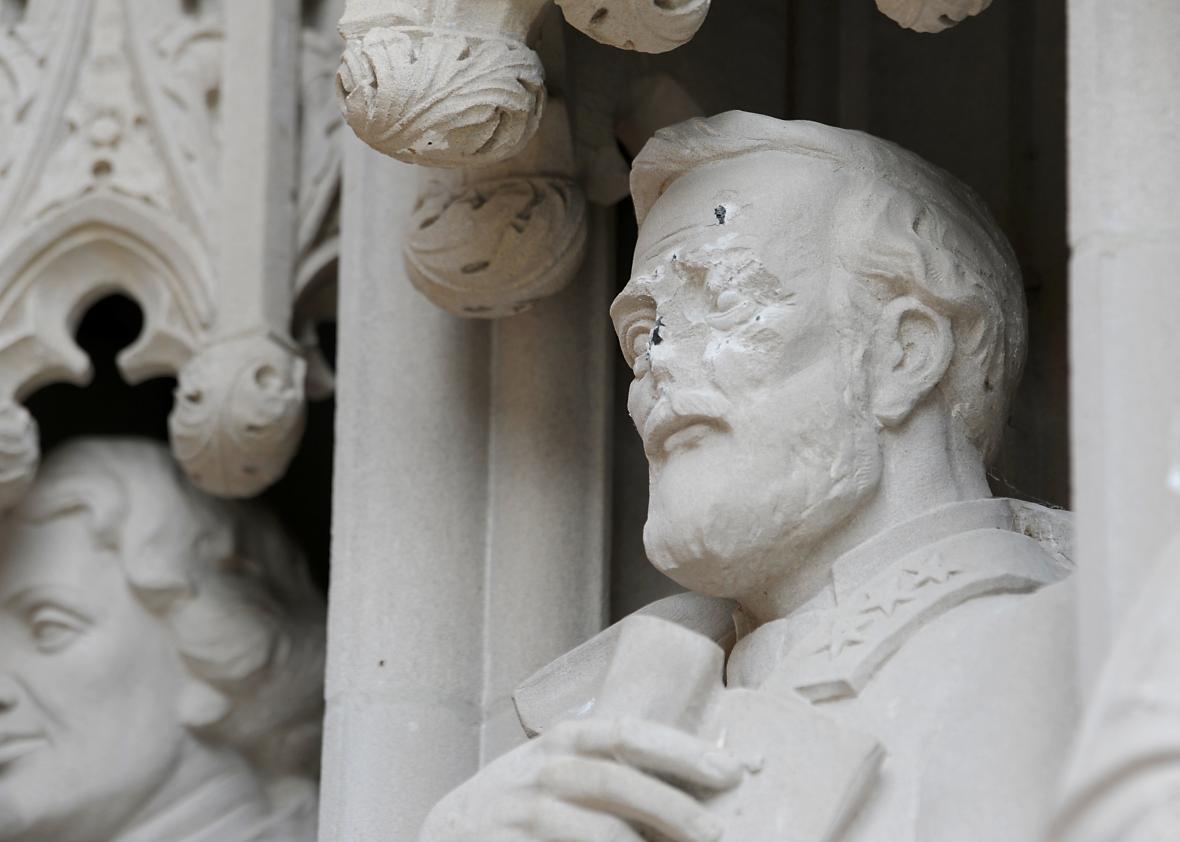Duke University removed a statue of Confederate Gen. Robert E. Lee early Saturday morning a few days after it was vandalized. The statue, which had been damaged on Wednesday, stood alongside other historical figures at the entrance of Duke Chapel. In an email to students, staff, and alumni, the president of the university, Vincent Price, explained that he decided to remove the statue in part to “ensure the vital safety of students and community members who worship there” but more importantly “to express the deep and abiding values of our university.”
“The removal also presents an opportunity for us to learn and heal,” Price added. “We have a responsibility to come together as a community to determine how we can respond to this unrest in a way that demonstrates our firm commitment to justice, not discrimination; to civil protest, not violence; to authentic dialogue, not rhetoric; and to empathy, not hatred.”
The statue was removed under the cover of darkness at 3 a.m. and no decision has been made on where exactly it will be kept. But it won’t be going to the dumpster, and rather “will be preserved so that students can study Duke’s complex past and take part in a more inclusive future.”
The decision to remove the statue came days after activists toppled a Confederate statue outside the Durham County, North Carolina courthouse Monday. On Thursday Chapel Hill Mayor Pam Hemminger wrote to UNC Chancellor Carol Folt calling on her to petition the state’s historical commission to remove the statue of a Confederate soldier from campus. “The statue presents a danger to students on campus and the Chapel Hill community,” the mayor wrote.
North Carolina Gov. Roy Cooper said earlier in the week that all Confederate monuments on public property should be taken down across the state. “We cannot continue to glorify a war against the United States of America fought in the defense of slavery,” Cooper wrote. “These monuments should come down.”
